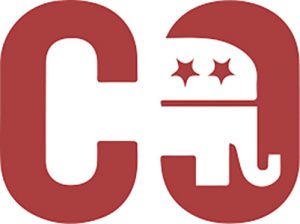by Kerrie Meyler
Did you make a New Year’s resolution? Was it to lose weight? Losing weight is probably the No. 1 New Year’s resolution – and also the No. 1 failed resolution. Why? To lose weight, you need to work with your brain – instead of working against your gut.
Why do we eat? There are a lot of reasons: We had a bad day, we’re celebrating, we’re not celebrating, we’re depressed, we’re bored, we overslept, we think it’s mealtime, we’re with friends at a restaurant, someone offers us food and we want to be polite, and maybe because we’re offered something we think is healthy. There are many other reasons why we eat, but seldom do they have much to do with actual hunger. We simply eat too much.
Studies in The Atlantic, Science Direct (2016), by the US Department of Health and Human Service’s National Institutes of Health (2016) and others have shown that when we eat, what we eat, and how much we eat is most often determined by outside factors. Obvious reasons might include eating because other people around us are eating. Less obvious reasons include the (larger) size of our plates, the color contrast between our food and our plates, and which commercials are on television when we’re eating. All of these can increase our girth and appetite.
Here’s the secret: The key to eating less without going hungry isn’t to control your hunger; it’s to control all the things that are unrelated to your hunger! Let’s look at how your brain can trick you into overeating, and how to counteract that.
Your brain responds to the sight of food: Take a look around at what’s on your counter, in your refrigerator, or on your desk. Your brain wants to eat what it sees, so put away everything but the healthiest foods. If you’re not willing to put away those candies, at least put them in a jar with a lid – make it a little harder to snack.
If you’re not eating, don’t sit where you can see people eating; your brain will normalize that behavior, and you’ll find yourself eating too.
You eat more when you’re not focusing on your food: Once you start eating, enjoy it and make food the purpose of your meal. That means you shouldn’t read, work, or watch TV while you’re eating; those will distract you and your brain won’t get the gratification it is looking for from your meal, so you’ll eat more (American Journal of Clinical Nutrition, April 2013).
Your brain is impulsive when it comes to food: When animals see food, they eat; it’s automatic. Humans are hardwired the same way – if you go to an event where food is served, your brain will conclude that you should mindlessly graze at the buffet (National Institute of Health, 2008). Distract your brain – you eat less when your back is to food, the further away you sit from the buffet, the longer you wait to start eating, and if you take the time to look at all the food that’s available before diving in.
While you can lose weight by exercising your body and exercising extraordinary willpower, it is far easier and more effective to work with your brain and eliminate mindless eating. Exercising and willpower are good too, but why rely solely on them?




